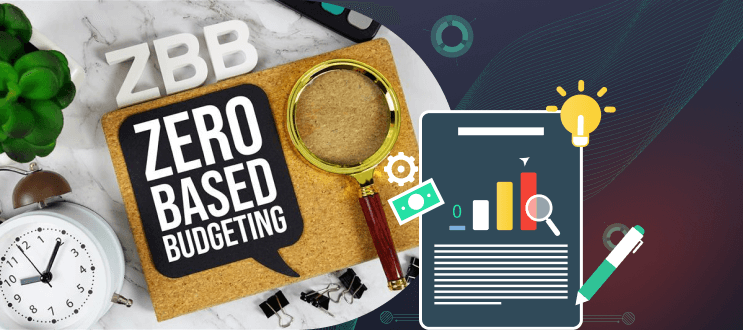Managing your money typically hinges on knowing what you plan to do with it. While traditional budgeting methods prevail, zero-based budgeting (ZBB) distinguishes itself from others by assigning a specific dollar amount to each expense. With this setup, wastage is minimized, and it’s much easier to follow your financial goals, whether that involves saving, paying off debt, or investing in tomorrow.
Table of Contents
What is zero-based budgeting (ZBB)?
Zero-based budgeting is a method of planning in which every dollar of your income is given a purpose. We don’t mean to harp on this point but it is important to remember that your income is fixed. The way you use that cash, though, can depend on a lot of factors including the skills and persistence of those handling its terms.
Rather than leaving extra funds sitting around, you can assign it to expenses, savings, or debt reduction so the budget comes out to “zero”. This doesn’t mean there’s no money left. It means every dollar works for you.
ZBB is different from traditional budgeting in that you don’t merely transfer over last month’s figures. You begin fresh at each turn, re-evaluating each spend in the context of changing life conditions.
Key Takeaways
- Zero-based budgeting assigns every dollar a role, leaving no unallocated funds.
- ZBB helps people align spending with their goals and priorities.
- A zero-based budget increases awareness of funds flow and reduces waste.
- It requires discipline and regular tracking, but the advantages of a zero based budget often outweigh the effort.
What makes a budget a zero-based budget?
When subtracting all expenses from your income, a budget becomes zero-based. So do your best to cut costs if you make $3,500 a month.
For example, use a small part of the $3,500 to cover rent and the rest should be divided among groceries, savings deposits (to make money grow more money), debt repayment and leisure spending.
ZBB is not like more traditional financial management, where money that’s left over just stays in the bank until you spend it. It makes sure that every dollar is used towards certain goals, such as creating a cash reserve fund or repaying loans faster.
Why is a zero-based budget important?
A zero-based budget is needed so that we spend money only with purpose; every decision becomes deliberate. Thus overspending is less likely in general when you follow this rule. Practitioners of zero-based budgeting sometimes find it easy to:
- Discover what should not be subscribed for or fee gotten into the habit of paying without thinking twice.
- Clear debts on time.
- Regularly put away savings for future needs – in cash or equivalents (such as money market accounts).
- Stick to long-term plans like the IBM Project in the 1980s that got ZBB rolling.
Such a budgeting style is especially important for families that are trying to stretch every dollar and get massive financial pressure off of their backs.
How to make a zero-based budget
Creating a zero-based budget requires a few structured steps to follow:
- List your total income – Include salary, side hustles, and any other sources.
- Track expenses – Use an expense tracker to see where your money is going.
- Assign categories – Housing, food, transportation, savings, entertainment, etc.
- Allocate every dollar – Match your income to your planned spending until the balance is zero.
- Review and adjust monthly – Income and priorities may change, so update regularly.
The key is to remain flexible while making sure no money goes unassigned.
Zero-based budgeting example
Let’s say your monthly income is $4,000. A sample zero-based budgeting plan might look like this:
- Rent/Mortgage: $1,200
- Utilities: $200
- Groceries: $500
- Transportation: $300
- Debt repayment: $600
- Savings: $800
- Entertainment: $200
- Miscellaneous: $200
Total: $4,000 – nothing left unplanned. This example shows how zero-based budgeting gives every dollar a job.
The pros and cons of zero-based budgeting
Pros / Advantages of a zero based budget:
- Full visibility into money flow.
- Helps cut wasteful spending.
- Encourages goal-oriented financial planning.
- Builds stronger saving habits.
Cons:
- Time-intensive to set up and maintain.
- Can feel restrictive compared to flexible methods.
- Requires careful tracking and commitment.
Is zero-based budgeting right for you?
There is little doubt that although zero-based budgeting can be used by people at all levels, not everyone will find it advantageous. If you’re in search of structure, want to save money aggressively, or need to get out of debt, zero-based budgeting is very effective. However, if precise tracking of the details irks you or incomes come in lumps instead of steadily, It might overwhelm all those with which it disagrees.
The wisest course is to sample it for several months. Even should you later alter it, valuable insights into just how you spend your money and what financial goals matter most will be gained. What about you? Are you ready to share your path to ZBB, was it successful?
September 29, 2025
September 29, 2025



